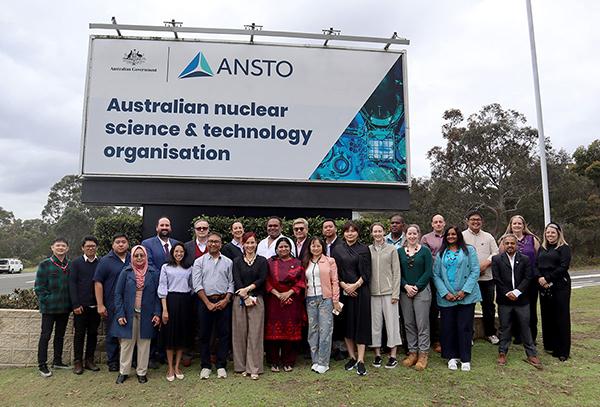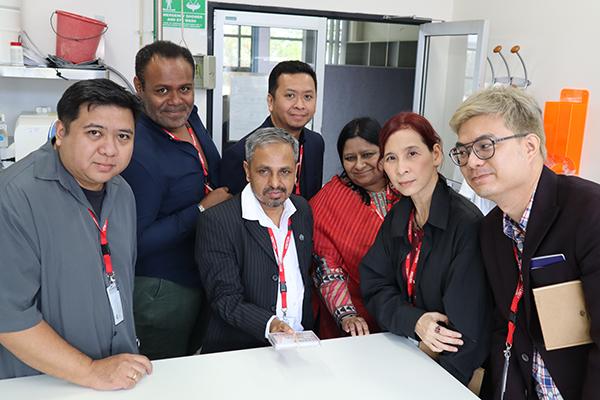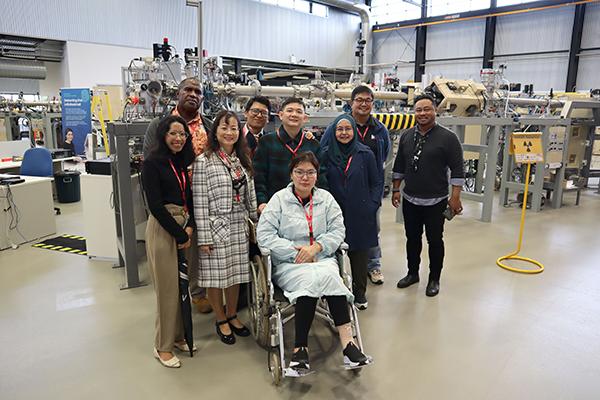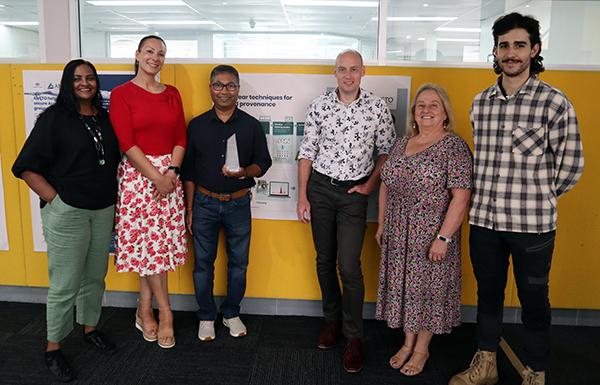To help address food fraud, a training workshop was held to advance the ANSTO-led project “Combatting Food Fraud Using Nuclear Technology (CFF)”, as part of the (FNCA) in Sydney on 14-16 October 2024.

Food Fraud In today’s complex food supply chain, transparency is more critical than ever. Food fraud-intentional alteration, misrepresentation, or substitution of products-undermines food security and poses risks to the environment, health, and consumer trust. This pervasive issue affects both developed and developing countries, with less-developed nations particularly vulnerable. The World Health Organization reports that around 1.6 million people fall ill daily from contaminated food, resulting in 420,000 deaths annually. Additionally, global producers face estimated losses of $40 to $50 billion each year. |
Dr Debashish Mazumder, Stable Isotope Ecologist, ANSTO, who is the leader of this project, said this project aims to undertake research to establish a food provenance technology platform and a federated database for key priority food items to mitigate incidents of fraud in the supply chain.
As part of this initiative, previous online training workshops in 2023 led to an agreement on the food items each country will use for the project: a common seafood commodity (Tiger prawn) and an additional item specific to each participating country. All participating countries which harvest prawns will contribute samples. Other food to be investigated include turmeric, rice, mango, honey, coffee, plum, meat and milk.
The outcomes of this project will contribute to the region through developing scientific capability in the application of nuclear analysis techniques in food traceability.
Representatives from the participating countries, Bangladesh, Indonesia, Malaysia, Mongolia, The Philippines, Thailand, and Viet Nam sent participants to Australia, with representatives from Japan attending virtually. Two observers from Fiji, who expressed interest in the project, also attended in person.
The goal of this workshop was to build upon previous engagements and discuss the methodological framework for the federated database of elemental fingerprints of food produce that each country will use during the project.
The workshop also included training and knowledge-sharing sessions on the application of nuclear technology for food fraud mitigation, featuring lab visits to observe nuclear and isotopic analysis techniques in food provenance determination.

Participants visited various labs to learn about their applications in food and environmental research and received training on the use of handheld X-ray fluorescence (XRF) scanners for food analysis, a major focus of the CFF project.

The Forum for Nuclear Cooperation in Asia (FNCA) is a Japan-led regional network of countries that develops and promotes the peaceful uses of nuclear technology in the Asia region through international development activities – currently through eight projects – with Australia, through ANSTO, leading this combatting food fraud project.
Dr Tamada Masao, the Japan FNCA Coordinator, addressed the participants speaking about the achievements of the Japan led FNCA and highlighting how provenance can potentially mitigate food fraud.
Dr Karina Meredith (Director of the Environment Research and Technology Group, ANSTO) highlighted ANSTO’s capabilities in environmental research and provided examples of the tangible outcomes of their work in areas such as water research, environmental change, and the impact of contaminants.
In a Q&A session, participants raised common challenges that emerged in the project included funding issues, sample collection problems, such as trust issues within the industry, and the importance of food safety and provenance to address adulteration issues in the supply chain.
ANSTO presenters included Dr Mazumder, Patricia Gadd, Science Program Leader; Jason Bertoldi; Dr Carol Tadros, Dr Jagoda Crawford, Elizabeth Bell, Dr Patrick Adams, Dr Armand Atanacio and Narelle Hegarty.
Prof Jesmond Sammut of the University of NSW, a partner in the development of the approach to food provenance, addressed the workshop. He stressed the importance and benefits of collaboration, both within and between institutions, but also more widely with government and industry partners.
Project participants look forward to the next project milestones, including samples being analysed by ANSTO and data returned to the country of origin (and included in a centralised database), testing of the federated database and fingerprints for provenance, and another workshop to be held virtually in 2025.
In closing remarks, both Ms Patricia Gadd and Dr Mitsuaki Yoshida (Japan) thanked the participants for their contributions, with Dr Yoshida also expressing gratitude to ANSTO for hosting the workshop in Sydney to support the UN Sustainable Development Goals critical for a prosperous and resilient future in our region.









